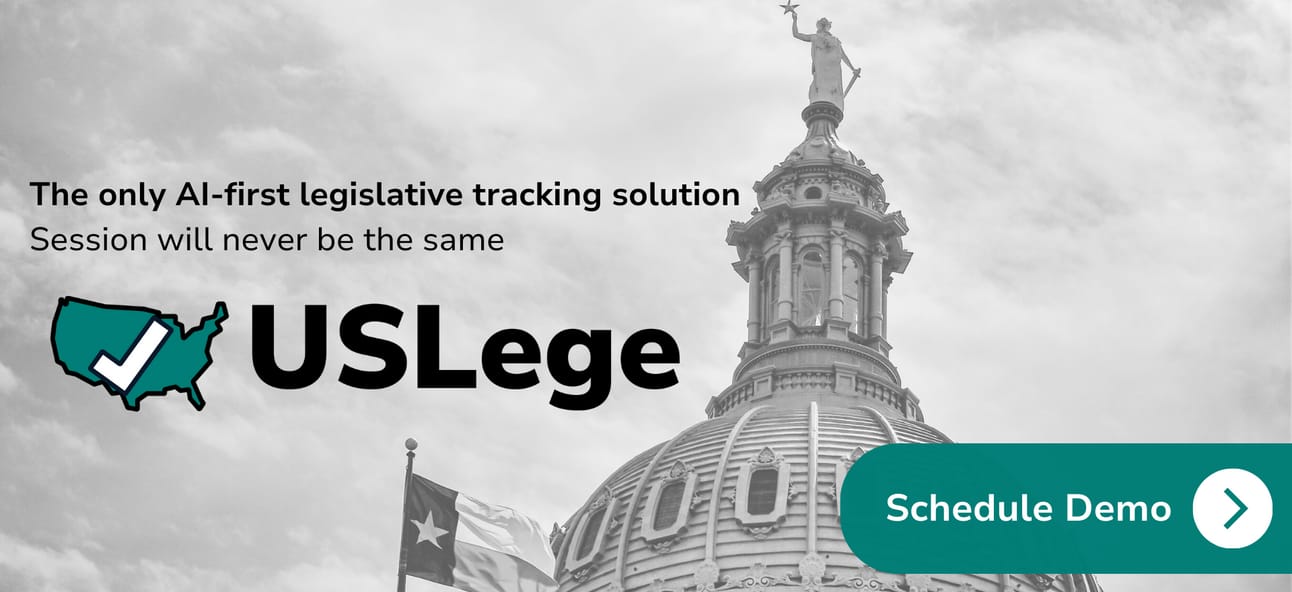
Welcome back, friends
Governor Greg Abbott’s State of the State address outlined an ambitious agenda, emphasizing school choice, border security, and property tax relief amid growing political divides. As lawmakers weigh the impact of his proposals, ranging from six-figure teacher salaries to stricter immigration enforcement, Texas faces a heated legislative session that could reshape education, public safety, and voting access statewide.
Today’s Insights:
Greg Abbott Delivers State of the State Address
Texas Counties Push Back Against Election Day Voting Restrictions

Image Credit: Office of The Governor
Greg Abbott Delivers State of the State Address
Governor Greg Abbott delivered his State of the State address, outlining his conservative priorities for Texas, with a strong focus on education, immigration, and border security reforms. Speaking before a packed crowd of over 800 at an Austin event hosted by KXAN, Abbott emphasized Texas' economic strength, citing the state's $2.6 trillion GDP. He stressed the importance of empowering parents in education, improving teacher recruitment, and implementing a school choice program that would allow public funds to be used for private school tuition. Republicans in the Senate quickly responded, with Senator Brandon Creighton introducing Senate Bill 2, which would provide eligible students with $10,000 for tuition and other education-related expenses. Despite opposition from Democrats and public school advocates who argue that ESA’s would drain resources from public schools, Abbott also called for teacher pay raises and a path toward six-figure salaries for educators.
Abbott also made immigration a focal point, aligning his rhetoric with President Donald Trump’s agenda. He touted the success of Operation Lone Star, a border security initiative that has resulted in the apprehension of over 500,000 migrants. The governor pushed for federal reimbursement of the $11 billion Texas has spent on border security measures, including state-funded barriers and razor wire deployments. Abbott signaled support for federal efforts to further restrict migration and ordered state agencies to coordinate with the Trump administration on deportations. However, local leaders, including Austin’s police chief, have resisted state-led immigration enforcement, setting the stage for further conflicts. Lieutenant Governor Dan Patrick has prioritized legislation requiring local law enforcement to cooperate with federal immigration authorities, reinforcing Texas' aggressive stance on border security.
Beyond education and immigration, Abbott urged lawmakers to enact several other key measures, including a constitutional amendment to deny bail to violent crime suspects and undocumented immigrants deemed flight risks. He also called for $10 billion in property tax relief for homeowners and efforts to strengthen Texas’ energy production and water supply. With a record $300 billion state budget and a $24 billion surplus, the Republican-led Legislature has until June 2 to consider legislation supporting Abbott’s agenda. As lawmakers debate which policies to prioritize, Abbott’s speech underscored the ongoing ideological divide in Texas politics, particularly regarding public school funding, immigration enforcement, and criminal justice reform.

Image credit: Wikipedia
Texas Counties Push Back Against Election Day Voting Restrictions
A growing debate in Texas centers on the future of countywide voting, a system allowing voters to cast ballots at any polling place in their county on Election Day. More than a dozen counties oppose efforts by some state lawmakers to eliminate the program, arguing that it enhances voter convenience and saves millions in taxpayer dollars. Proponents of the change, including Sen. Bob Hall and Rep. Steve Toth, claim the system lacks transparency and produces inaccurate vote totals. Hall has also proposed eliminating electronic voting equipment, which is essential to the program’s operation. Election officials, however, dispute these claims, pointing to the program’s success in improving accessibility, especially in rural areas where residents often commute long distances for work.
Eliminating countywide voting would require counties to establish and staff additional precinct-based polling locations, significantly increasing costs for labor, equipment, and facilities. Officials estimate the changes would cost millions, forcing budget reallocations that could impact other essential services. Some counties have already passed resolutions opposing the proposal, while others are in the process of drafting similar statements. The program, introduced in 2006 with bipartisan support, is now used by 99 counties, covering over 80% of Texas voters. Supporters argue that it helps ensure greater voting access, particularly as other election law changes have expanded early voting requirements and restricted available polling sites.
Election administrators warn that reverting to precinct-based voting could increase confusion among voters, leading to more provisional ballots, which are often rejected if cast at the wrong location. Some officials also worry about the burden on local budgets, as school districts and municipalities running their own elections would face higher staffing and equipment costs. Critics of the elimination effort emphasize that countywide voting has worked effectively for nearly two decades, offering flexibility in the event of polling place closures due to power outages, emergencies, or natural disasters. With the legislative debate heating up, the issue highlights a broader tension between state lawmakers seeking tighter election controls and local officials advocating for voter accessibility and cost-effective solutions.
We hope you enjoyed today’s read!
🎙️Check Out Our Podcast! 🎙️

Bills and Business is your go-to podcast for conversations related to Texas legislation and business. Hosted by Laura Carr, Co-Founder of USLege—an AI-driven legislative tracking software—we bring you in-depth analysis on economic trends, impactful legislation, and key developments shaping Texas business.
Subscribe on Youtube, Apple Podcasts, and Spotify for weekly episodes!
🔍 USLege - The Only AI-First Political Tracking Solution ✨
USLege helps you track legislation and find what you need faster from bills, committee hearings, floor debates, and state agency meetings faster.
Say goodbye to tedious tasks!
🤝 Texas Association of Business 📈

Texas Association of Business (TAB) is the Texas State Chamber, representing companies of every size and industry. TAB’s purpose is to champion the best business climate in the world, unleashing the power of free enterprise to enhance lives for generations.
Hate Laundry? NoScrubs laundry delivery is for you!
2-3 hour turnaround
Professionally folded
Quality guarantee
